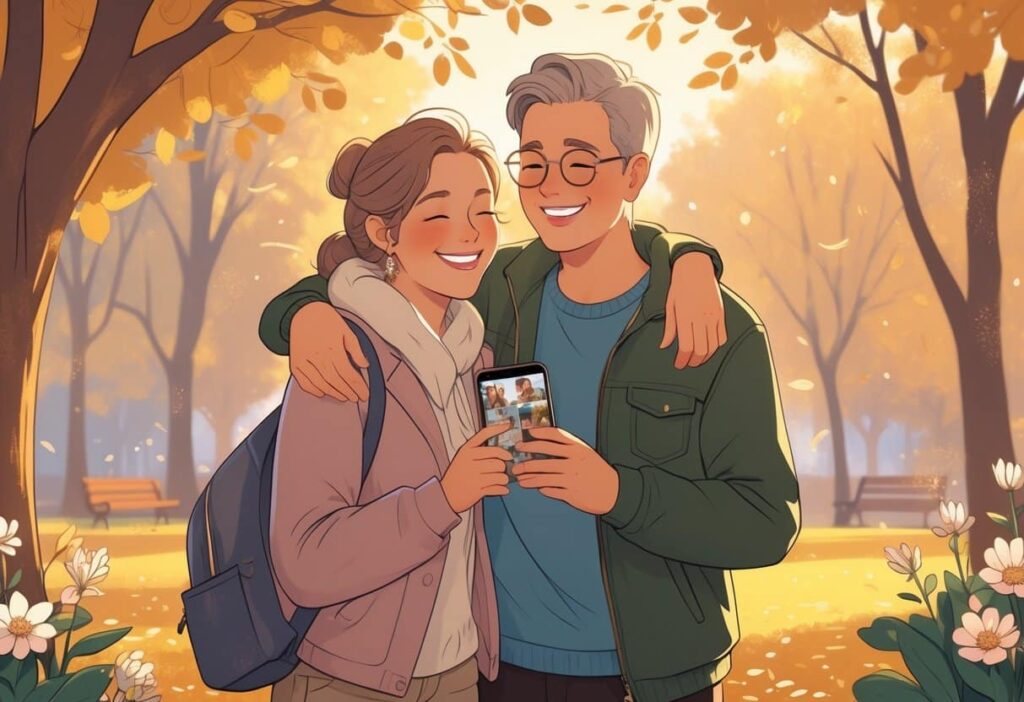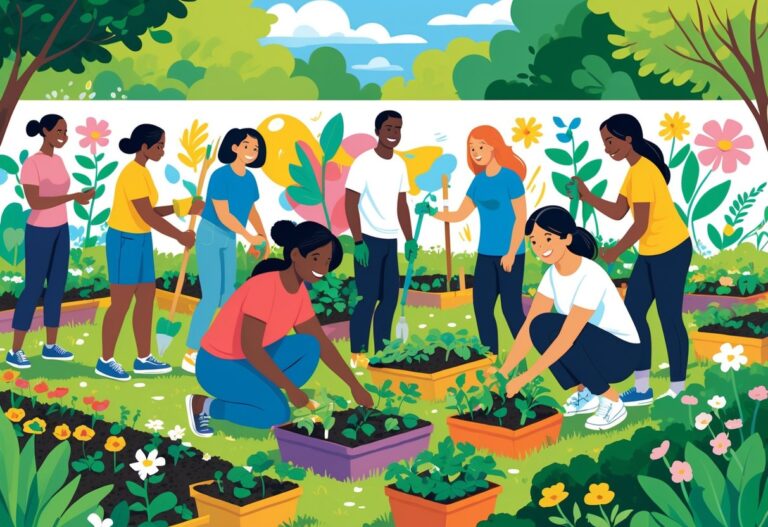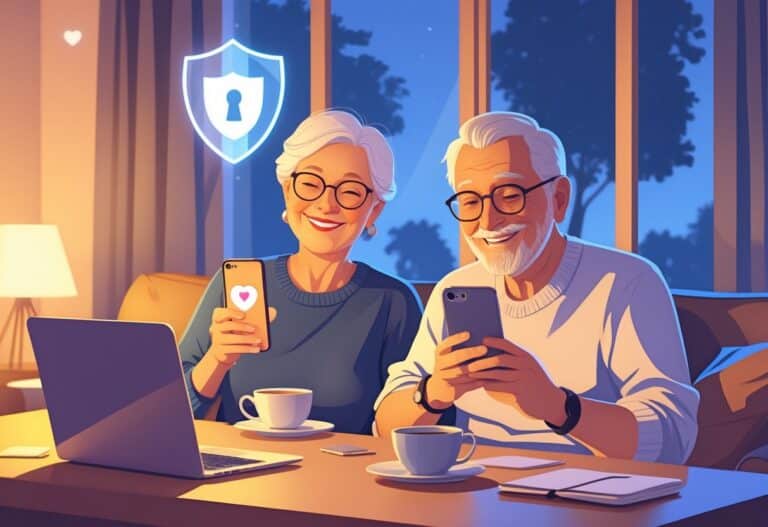Life gets busy. Friendships naturally drift apart over time.
Maybe you moved to a new city, changed jobs, or got swept up in daily responsibilities. Losing touch with old friends happens to everyone.
The good news? Most people welcome contact from old friends, even after years of silence.
Reconnecting with old friends is easier than you think and often more rewarding than you expect. Research shows that people underestimate how positive reconnecting will be while overestimating how awkward it might feel.
Your old friends likely think about you too and would be happy to hear from you.
The key is knowing how to approach reconnection in a way that feels comfortable for both of you. With the right strategies for finding old friends, making initial contact, and rebuilding those relationships, you can turn dormant connections back into meaningful friendships.
Understanding Why Friendships Fade
It’s completely normal for friendships to ebb and flow as people move through different stages of their lives. Major shifts in circumstances, priorities, and personal growth patterns create natural distance between even the closest connections.
Common Reasons for Losing Touch
Geographic distance tops the list of friendship killers. When you or your friend moves to a new city for work or family, keeping in touch gets harder.
Physical separation makes spontaneous hangouts impossible. You can’t just grab coffee or meet for dinner anymore.
Busy schedules are another big reason. Career demands, family responsibilities, and personal commitments eat up your free time.
Priorities shift. Maybe you focus on work deadlines, raising kids, or caring for aging parents, and social connections take a back seat.
Digital communication overload creates a false sense of connection. Liking Facebook posts or viewing Instagram stories might feel like staying in touch, but it’s not the same.
Real friendship needs deeper interaction than a quick scroll. Surface-level engagement just doesn’t build meaningful relationships.
Natural drift happens too. Sometimes you just run out of things to talk about.
Without shared daily experiences, conversations can feel forced or awkward.
The Impact of Life Changes on Relationships
Major life transitions reshape your social landscape. Getting married, having kids, or starting new careers changes your daily routine and available time.
Your friend circle often shifts to include people who share your current life stage. New parents connect with other parents, while single friends might feel left out.
Different life paths create growing gaps. Maybe you go back to school while your friend enters the workforce, and your experiences start to diverge.
Income differences can strain friendships. One person might afford expensive activities while the other can’t join in.
Personal growth sometimes leads people in different directions. Your values, interests, and goals may change over time.
What bonded you in college might not matter in your thirties. People change over time, and that’s perfectly normal.
Relationship changes affect friendship dynamics. New romantic partnerships often shift time and attention away from platonic relationships.
Recognizing the Value of Old Friendships
Shared history gives old friendships a unique depth. Your longtime friends witnessed your growth and know your full story.
They remember your embarrassing moments, celebrated your victories, and supported you through tough times. That foundation creates irreplaceable bonds.
Authentic connection flows easier with people who knew you before adult responsibilities took over. You can drop pretenses and just be yourself.
Old friends accept your quirks and flaws because they’ve seen them all before. This comfort level is tough to find in new relationships.
Emotional support from longtime friends carries special weight. They understand your patterns, triggers, and coping mechanisms from years of experience.
The good times you had together still matter, even if the friendship has faded. Those memories are worth preserving.
Perspective and wisdom come from friends who’ve watched you navigate different life stages. Their advice carries more meaning because they know your decision-making patterns and past choices.
Benefits of Reconnecting with Old Friends

Reconnecting with old friends brings powerful emotional rewards. These renewed connections fight loneliness and provide unique psychological advantages.
Emotional and Psychological Advantages
Old friends offer something special that new relationships just can’t. They remind you of who you are at your core and help you see how much you’ve grown.
Reconnecting with old friends gives you a clearer view of your personal progress. These friends knew you during different life stages and can show you how far you’ve come.
Your identity gets stronger when you reconnect with people from your past. They remember your core values and personality traits that might have gotten buried under daily stress.
Old friends also provide emotional validation. They understand your history and can relate to experiences you shared together.
The familiarity factor makes reconnecting easier than building brand new friendships. You already have common ground and shared memories to build on.
Strengthening Your Social Connection
Your social network naturally changes over time. People’s networks turn over about every seven years, with only 48% of relationships staying the same.
Reconnecting helps fill gaps in your social circle. You don’t need to start from scratch like you would with strangers.
These renewed friendships often feel more authentic. You chose to be friends before, and that choice was based on real compatibility.
Key social benefits include:
- Expanded support network
- More diverse perspectives
- Increased sense of belonging
- Stronger community ties
Old friends can introduce you to their current social circles. This opens doors to meet new people through trusted connections.
Enhancing Mental Health and Wellbeing
The mental health benefits of reconnecting with old friends are significant. Fifty percent of people report feeling lonely, so these connections matter.
Strong friendships provide better mental health outcomes than many other relationships. Research involving 280,000 people found that friendships can be more important for mental health and wellbeing than family relationships.
Reconnecting can help with several common mental health challenges:
| Mental Health Issue | How Old Friends Help |
|---|---|
| Depression | Provide emotional support and shared positive memories |
| Anxiety | Offer familiar, comfortable social interactions |
| Low self-esteem | Remind you of your strengths and past achievements |
| Social isolation | Create meaningful social connections |
The University of Virginia found that stronger friendships link directly to greater mental health and self-esteem. They also reduce social anxiety and depression symptoms.
These relationships provide a sense of continuity in your life. During times of change or stress, old friends can anchor you and remind you of your resilience.
How to Find and Reach Out to Old Friends

Finding old friends takes the right tools and a bit of detective work. Social media, mutual connections, and specialized search tools can help you locate friends you’ve lost contact with.
Utilizing Social Media Platforms
Facebook is still the most effective platform for reconnecting with old friends. Start by searching their full name in the search bar. Try different name variations they might have used.
Check the “People You May Know” section. Facebook’s algorithm often suggests people from your past based on shared contacts and locations.
Some Facebook search tips:
- Search by hometown or high school
- Look through class reunion pages
- Check old photos where they might be tagged
- Browse your existing friends’ connections
Instagram and LinkedIn can also help. LinkedIn works well for professional connections, while Instagram might show more recent photos to help you confirm identity.
Twitter works if you know their interests or profession. Many people use the same usernames across platforms, which makes things easier.
Searching Through Mutual Friends and Networks
Mutual friends are your best resource for finding lost connections. Make a list of people who knew both you and the friend you’re seeking.
Reach out to these mutual connections directly. Ask if they have current contact info or know how to reach your old friend.
School alumni networks are gold for searching:
- High school reunion committees
- College alumni directories
- Professional association lists
- Sports team or club rosters
Former workplace connections can help too. Reach out to old colleagues who might still be in touch.
If you knew your friend’s family, consider asking them. Parents, siblings, or relatives might have current contact details.
Using Online Tools and People Search Engines
Specialized people search engines go beyond social media. These tools search public records, phone directories, and other databases.
Popular search engines include WhitePages, Spokeo, and BeenVerified. Many offer free basic searches, but some details require payment.
Google searches work surprisingly well. Try searching their full name in quotes along with their hometown, school, or profession.
Professional networking sites like LinkedIn let you search by company, school, and location. You can often find people even if they’re not in your immediate network.
A few tips:
- Respect privacy settings and boundaries
- Don’t use personal info inappropriately
- Consider reaching out through mutual friends first
- Be prepared—some people prefer to stay disconnected
Alumni websites and class reunion pages often keep updated contact lists for graduates.
Best Practices for Making Contact
The key to successful reconnection is sending a thoughtful first message, managing your own discomfort, and having realistic hopes about what might happen.
Crafting a Meaningful First Message
Your first message sets the tone. Start by giving a reason for reaching out so your friend feels comfortable.
Simple conversation starters:
- “I saw your post on Facebook and missed you.”
- “I heard this song that reminded me of you.”
- “I passed by our old school and wondered how you were doing.”
Keep your message short—one paragraph is enough. Include a brief update about your life to give them something to respond to. Ask specific questions that show you remember details about them.
If you had a falling out, acknowledge what happened without making excuses. Take responsibility for your part. This shows you’ve grown.
End with a clear invitation to reconnect, like “I’d love to hear back from you” or “Want to grab coffee sometime?” Make your intentions obvious and give them an easy way to respond.
Overcoming Awkwardness and Fears
Feeling nervous about reaching out is totally normal. You might worry about being rejected, ignored, or judged for where you are in life.
Before you send a message, ask yourself why you want to reconnect. Make sure you genuinely miss this person—not just feeling lonely or needing someone to hang out with.
Remember, reconnecting with old friends is possible when both people show willingness and interest. Most people feel flattered when someone reaches out.
The fear of awkwardness is usually worse than the actual conversation. Focus on being genuine, not perfect. Your friend probably has fond memories of you too.
If you’re worried about timing, there’s rarely a perfect moment. Waiting usually just makes it harder, not easier.
Setting the Right Expectations
Try to stay realistic about what might happen when you reach out. Your friend could take a while to respond, or maybe they won’t reply at all.
Possible outcomes include:
- Exchanging a few messages but not meeting up
- Discovering you’ve both changed and have less in common
- Successfully rebuilding a close friendship
- Getting no response
Don’t expect things to snap back to how they were before. People grow, and friendships shift. You’ll probably need to find new things in common and build fresh connections.
Your friend might be swamped with work, family, or other stuff. A delayed response doesn’t always mean they don’t care.
Prepare yourself mentally for different scenarios before you send your message. That way, whatever response you get, you can handle it with some grace and maturity—or at least try.
Navigating First Conversations and Rebuilding Trust
That first conversation with an old friend really sets the tone. Focus on positive shared memories, but be ready to talk about any unresolved issues if they come up.
Sharing Memories and Positive Experiences
Kick things off by bringing back a fond memory you both share. It’s an easy way to create a warm vibe right away.
Pick memories that made you both laugh or feel close. Mention specific details—the place, who was there, or something funny that happened.
Effective memory starters include:
- “Remember when we…”
- “I was just thinking about that time we…”
- “Do you still laugh about…”
These little moments remind both of you why you became friends in the first place. They spark good feelings instantly.
Share how certain experiences shaped you or still make you smile. Ask your friend what memories stand out most to them.
This approach helps reconnect with different parts of yourself that the friendship brought out. It also shows your friend that your time together meant something.
Addressing Past Conflicts or Misunderstandings
Sometimes friendships end because of conflict or hurt feelings. If that’s the case, try to address it directly but gently.
Don’t mention past issues in your first conversation. Focus on reconnecting first. Move past conflicts for now, and talk about them later if you need to.
When you do address past issues:
- Take responsibility for your part
- Avoid blaming language
- Focus on moving forward
- Listen to their perspective
Conflict with friends can leave you feeling lonely and hurt. Acknowledge those feelings, but don’t dwell on them.
Sometimes people just assume the other person didn’t care enough to stay in touch. It’s better to address that misunderstanding directly.
Say something like, “I’ve missed our friendship,” or “I should have reached out sooner.” It shows you value the relationship.
Reestablishing Genuine Interest
Show real curiosity about who your friend is now. People change, and you need to get to know the current version of your friend.
Display your interest by asking follow-up questions and actually listening to their responses. It helps you connect with who they are today.
Ask questions about:
- Current job or interests
- Family or relationships
- Hobbies they’ve picked up
- Places they’ve lived
- Goals and dreams
Don’t make the conversation just about catching up on facts. Dive into what matters to them now.
Share your own changes and growth, too. Be honest about how you’ve evolved since you last talked.
Listen for new common interests. These can become the foundation for your renewed friendship.
Make future plans based on shared interests you discover while talking. It shows you want to keep the connection going.
Maintaining Renewed Friendships Over Time
Reconnecting is one thing, but keeping a friendship going takes effort. Regular communication and adapting to life’s changes help friendships last.
Scheduling In-Person or Virtual Meetups
Regular meetups keep things alive after you reconnect. Monthly or quarterly meetings usually work for most people without feeling overwhelming.
Set up recurring plans that fit both your schedules. Maybe it’s a monthly coffee date or a quarterly dinner.
Virtual meetups help when distance is an issue. Video calls, online game nights, or virtual movie watching create shared experiences.
Plan activities you both enjoy:
- Coffee shop visits
- Walking or hiking
- Online gaming sessions
- Virtual cooking together
- Museum or event visits
Put meetups on your calendar like any other important appointment. Making it easy helps you follow through.
Send calendar invites or reminders a week before your meetup. It shows you care and helps both of you prepare.
Staying Consistent with Communication
Consistent contact between meetups keeps friendships strong. Small, regular touches work better than long gaps followed by intense conversations.
Weekly or bi-weekly check-ins help you stay connected without being overwhelming. A quick text asking about their week goes a long way.
Share life updates as they happen, both the good and the tough stuff.
Switch up how you communicate to keep things interesting:
- Quick text messages
- Voice notes while commuting
- Photos of daily life
- Shared social media posts
- Email updates for longer thoughts
Remember important dates in their life. Birthdays, work events, and family milestones mean a lot.
Set phone reminders for these special dates. A simple “thinking of you” message on hard days can really strengthen your bond.
Staying consistent with communication helps prevent friendships from fading away again.
Adapting to Ongoing Life Changes
Life changes touch every friendship at some point. If you can stay flexible, you’ll help your friendships survive those big transitions.
Career shifts, family additions, and health issues all change how much time people have. It’s smart to adjust your expectations when friends face major changes.
Common life changes that affect friendships:
- New jobs or career shifts
- Marriage or divorce
- Having children
- Moving to new locations
- Health challenges
- Retirement
Support friends when they’re going through tough transitions. Sometimes, offering help feels right; other times, giving space is better.
Your own life changes matter too. If your availability shifts because of new responsibilities, let your friends know.
Stay flexible with communication styles. Sometimes you might text more, other times you might have space for longer phone calls.
If you can keep adapting, you’ll stay connected even as life keeps shifting. Adapting to ongoing life changes helps friendships last through every season.






